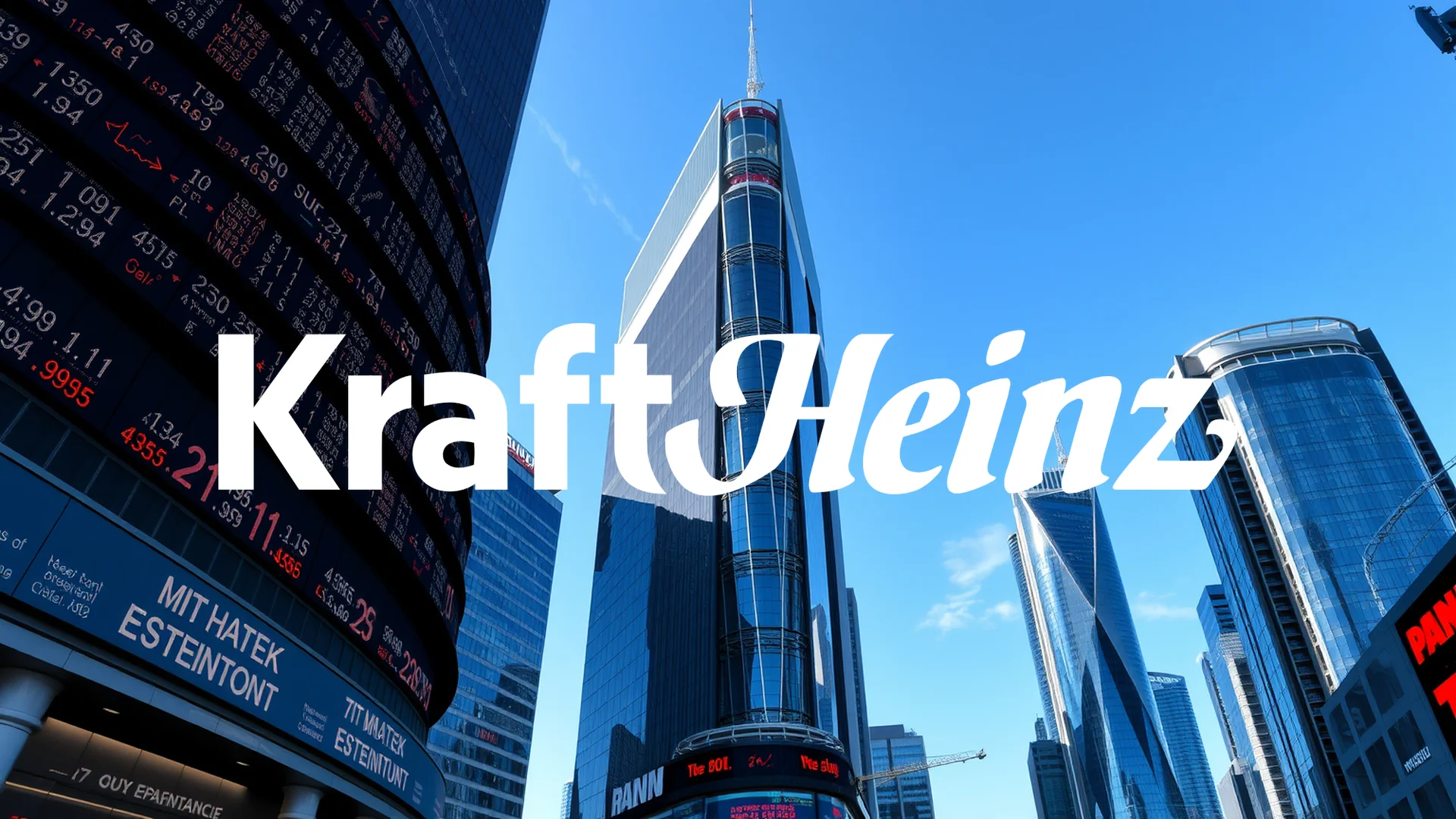Kraft Heinz is approaching a pivotal juncture in its corporate history. As the food industry giant prepares to release third-quarter results on October 29, it is simultaneously orchestrating the most significant restructuring initiative in its existence: a separation into two independent publicly-traded entities. Market participants, however, remain unconvinced, with the company’s shares continuing their downward trajectory and trading near annual lows.
Board Refresh and Financial Headwinds
In a move signaling commitment to transformational change, Kraft Heinz has strengthened its governance framework with the addition of three new independent directors. This leadership enhancement comes amid challenging operating conditions that have pressured financial performance.
Third-quarter projections paint a concerning picture. Market experts anticipate revenue of $6.26 billion, representing a 2% year-over-year contraction. The earnings outlook appears even more troubling, with forecasts pointing to 57 cents per share – a dramatic 24% plunge compared to the same period last year.
Compounding these challenges, analysts project the adjusted gross margin will contract by 140 basis points to just 32.9%. This deterioration stems primarily from escalating operational expenses and unfavorable product mix dynamics, with cost pressures originally expected in the second quarter having shifted to the current period.
Radical Restructuring Strategy
The centerpiece of Kraft Heinz’s revival strategy involves an historic corporate separation scheduled for completion in the second half of 2026. This strategic maneuver will create two distinct entities with focused operational mandates:
Should investors sell immediately? Or is it worth buying Kraft Heinz?
- Global Taste Elevation Co.: This business will concentrate on condiments, sauces, and flavor enhancement products, generating approximately $15.4 billion in annual revenue (59.7% of total sales)
- North American Grocery Co.: This entity will maintain focus on staple food brands including Kraft Mac & Cheese and Oscar Mayer, accounting for $10.4 billion in revenue (40.3% of total sales)
The fundamental rationale behind this separation lies in allowing each organization to sharpen strategic focus on core competencies and distinctive market positions. Some investment analysts, including those at Longleaf Partners Fund, suggest the combined equity value of the separated entities could potentially exceed $40 per share.
Investor Sentiment Remains Cautious
Despite the ambitious transformation blueprint, market reception has been tepid. Kraft Heinz equity has declined nearly 18% year-to-date, with shares currently trading around $25 – substantially below the 52-week high of over $36.
This market skepticism appears warranted given several material considerations. The separation process is projected to result in approximately $300 million in synergy losses. Additionally, the corporation continues to navigate declining sales volumes and an unfavorable macroeconomic backdrop.
The upcoming Q3 earnings release will provide crucial insight into whether this radical strategic shift can ultimately steer the struggling food conglomerate toward sustainable recovery.
Ad
Kraft Heinz Stock: Buy or Sell?! New Kraft Heinz Analysis from February 8 delivers the answer:
The latest Kraft Heinz figures speak for themselves: Urgent action needed for Kraft Heinz investors. Is it worth buying or should you sell? Find out what to do now in the current free analysis from February 8.
Kraft Heinz: Buy or sell? Read more here...









